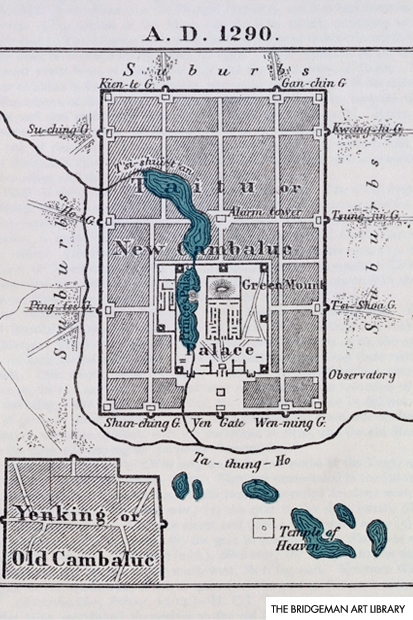Adrian Tinniswood, so gifted and spirited a communicator of serious history to a wide readership, here brings a number of themes from his previous books together. The Verneys recounted the individual experiences of 17th-century members of a leading Buckinghamshire family. The Rainborowes, set in the same period, applies the same technique to a less substantial family of Londoners.
As in his study of the great fire of London in 1666, By Permission of Heaven, Tinniswood takes us into the daily life of the capital, though here his emphasis is on the suburban world of commercial enterprise and religious dissent from which the Rainborowes emerged. Tinniswood’s previous book, Pirates of Barbary, showed Europeans doing battle with the corsairs of the Mediterranean. It was in that cause that the career of the first prominent Rainborowe, William, a bold seaman and an adviser to Charles I on maritime affairs, took shape. William’s son Thomas, another seaman though a soldier too, for a time led the parliamentary navy in the civil wars, the conflict at the heart of this book, as of Tinniswood’s longer volume on the Verneys.
The Rainborowes are at once a smaller and a harder challenge. The wonderfully ample archive of the Verneys afforded Tinniswood opportunity for ambitious, thick description. He has no such resource for the Rainborowes, who to his candid dismay keep slipping below the historical radar.
He has nonetheless discovered enough to bring coherence to the record of a family whose history straddled two continents. A number of them emigrated to the New World. Thomas’s sister Martha married the famous governor of Massachusetts, John Winthrop. But the emancipation of English puritanism by the Long Parliament stemmed the flow of emigration on which the colonial economy depended. Some of the Rainborowe clan returned to England and joined the parliamentary army alongside Thomas, who had remained behind. Tinniswood is one of the few historians to have explored the interaction of English and American history in the 1640s.
It is on the English side, in recounting the political radicalism of Thomas and his younger brother William, that he finds most interpretative scope. After the execution of Charles I, William, a major in the new model army, devised a standard carrying the words Salus Populi Suprema Lex — ‘the safety of the people is the supreme law’ — beneath the image of a severed head and an axe dripping with blood. Soon he was mixing with the extreme antinomian sect known to derisive contemporaries as the Ranters, was charged with blasphemy, and was disowned by the new republic.
But it is Thomas, another friend of ‘the people’, whose views have acquired a kind of immortality, thanks to his remarks in the new model’s debates at Putney in 1647 over the future of the constitution. In opposition to Cromwell’s son-in-law Henry Ireton, who wanted voting rights to be restricted by a property qualification, Thomas argued that because
the poorest he in England hath a life to live as the greatest he, every man that is to live under a government ought first by his own consent to put himself under that government.
The shorthand transcript of the debate, lost for 250 years, came to light only in the 1890s, just when socialist historians were discovering the Levellers as their forebears. Thomas’s words have subsequently been a badge of left-wing historiography.
But it may not have been quite the revolutionary statement of lower-class entitlement that it looks. Seven years earlier, gentry MPs, eager to expand the electorate so as to widen parliament’s support against Charles I, had asserted the right of ‘the poor’ to vote — though admittedly they grew wary of that argument after the rise of populist politics in the new model army. The principle that consent is the sole legitimate basis of government was a common Roundhead position, not just a Leveller one — though again mainstream Roundheads were alarmed by its populist application. Whether Thomas really wanted a universal male franchise is not easy to say. What concerned him and his allies most was the voting rights not of the nation at large but of the soldiers who had risked their lives for parliament. Once the Cromwellians had agreed to enfranchise them, the demand for a general extension of the electorate evaporated.
Thomas was not a man of peace. He wanted the army to impose its will on parliament by force. It seems to have been he who, after the siege of Colchester in 1648, brought a new bitterness to the wars by securing the execution in cold blood of the royalist leaders there.
He was difficult to work with, muscling in on political gatherings beyond his remit and histrionically exaggerating his grievances. Yet his death in a chaotic affray in the aftermath of Colchester, implausibly blamed by his friends on Cromwell, made him the symbol of a cause whose radicalism the future lord protector seemed to have betrayed. His funeral in London turned into a mass political demonstration.
Tinniswood is ‘not even sure’ that he ‘likes’ the Rainborowes, ‘with their hard mix of puritanism and politics, their ruthless pursuit of personal profit’. But he could hardly have done more to bring them to life or to capture their part in the convulsions of their time.






Comments